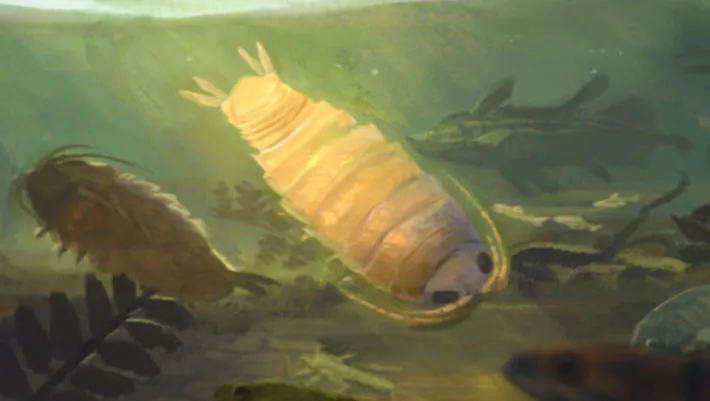
Unlocking the Secrets of a 125-Million-Year-Old Isopod: A Window into Freshwater Evolution!
2025-04-21
Author: John Tan
Ancient Discovery Reveals New Insights!
A groundbreaking discovery in Lebanon has unveiled a new genus and species of freshwater isopod, shedding light on the evolutionary origins of today’s cave- and groundwater-dwelling isopods. Dating back to the Early Cretaceous epoch, approximately 125 million years ago, this fascinating creature named Dysopodus gezei was unearthed from ancient lake sediments.
Meet Dysopodus gezei!
Measuring between 1.8 to 2.5 cm in length and boasting an elongated body, Dysopodus gezei reveals a distinct beauty in the isopod family, a diverse order of crustaceans that now has over 10,000 known species! While most modern isopods inhabit marine environments—from the deepest oceans to sandy shores—this ancient specimen indicates that freshwater habitats have long been a vital part of isopod evolution.
A Freshwater Revolution!
Historically, isopods predominantly thrived in marine ecosystems, but the emergence of Dysopodus gezei suggests multiple independent transitions into freshwater environments. Currently, around 1,000 species are known to flourish in freshwater habitats today, spanning everything from remote swamps to bustling streams.
Exciting Links to the Present!
What makes this find even more intriguing is Dysopodus gezei’s resemblance to modern non-parasitic isopods of the Cirolanidae family. Unlike their parasitic cousins, which are often found lurking with their fish and crustacean hosts, these creatures help paint a broader picture of isopod life! Experts believe that these ancient inhabitants played a significant role in evolving the diverse communities of freshwater life we see today.
Unearthed Treasures!
Discovered in layers known as the Lebanese dysodiles at Jdeidet Bkassine, both specimens were excavated in 2003 and 2023. These layers provide critical evidence of small, shallow lakes that thrived near volcanic formations long ago, further confirming the aquatic lifestyle of Dysopodus gezei.
Why This Matters!
The rarity of freshwater cirolanid species emphasizes the significance of this discovery. Dysopodus gezei not only supports the idea of ancient freshwater ecosystems but also encourages researchers to rethink the history of subterranean species evolution. With more specimens, scientists may uncover even finer details that could reshape our understanding of the connections between prehistoric freshwater isopods and today’s living fauna.
Stay Tuned!
The groundbreaking findings, published in the April 2025 issue of *Royal Society Open Science*, promise to enrich our understanding of evolutionary biology while keeping the door open for future discoveries. With each fossil unearthed, we edge closer to comprehending the mesmerizing tapestry of life beneath our feet!




 Brasil (PT)
Brasil (PT)
 Canada (EN)
Canada (EN)
 Chile (ES)
Chile (ES)
 Česko (CS)
Česko (CS)
 대한민국 (KO)
대한민국 (KO)
 España (ES)
España (ES)
 France (FR)
France (FR)
 Hong Kong (EN)
Hong Kong (EN)
 Italia (IT)
Italia (IT)
 日本 (JA)
日本 (JA)
 Magyarország (HU)
Magyarország (HU)
 Norge (NO)
Norge (NO)
 Polska (PL)
Polska (PL)
 Schweiz (DE)
Schweiz (DE)
 Singapore (EN)
Singapore (EN)
 Sverige (SV)
Sverige (SV)
 Suomi (FI)
Suomi (FI)
 Türkiye (TR)
Türkiye (TR)
 الإمارات العربية المتحدة (AR)
الإمارات العربية المتحدة (AR)